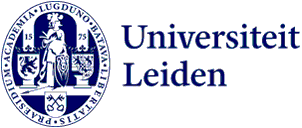Promotie
Evolutionary Developmental Biology of Bitterling Fish
- W. Yi
- Datum
- dinsdag 15 maart 2022
- Tijd
- Bezoekadres
-
Academiegebouw
Rapenburg 73
2311 GJ Leiden
Promotor(en)
- Prof.dr. M. K. Richardson
Samenvatting:
We developed the bitterling as a unique, well-studied model organism in the area of the evolutionary ecology of brood parasitism. The bitterling-mussel relationship, interspecific mussel host preference, and mussel gill structure are studied in detail, to help understand the developmental adaptation of bitterling embryos in response to their mussel hosts. Our complete stage series of the bitterling species R. ocellatus is a new, character-based systems that are compatible with the widely-used zebrafish staging system. With time-lapse video, we demonstrated the dynamic processes of hatching moment of the rosy bitterling in real time, which indicates the hatching process is mechanical rather than enzymatic. I also described the neuroanatomy of bitterling for the first time, filling the gaps in the previous embryonic research in various bitterling taxa. Combined with the molecular analysis of brain early development, brain development in the rosy bitterling is compared with that in the zebrafish D. rerio. The comparison indicated evolutionary adaptations related to the bitterling's brood parasitic lifestyle. We identified developmental delays in retinal pigmentation and pectoral fin development in the rosy bitterling compared to the zebrafish. The morphogenesis of the semicircular canals, the separation of the lagena from the sacculolagenar pouch and the formation of the asteriscus otolith are all pre-displaced in bitterling development. This predisplacement may be related to embryonic development in a dark environment where hearing is more useful than vision. This in turn would also explain why visual developent appears to be delayed in the bitterling. We studied the morphogenetic process of blastokinesis in the bitterling embryo, and its possible relation to brood parasitism. We focused on early pre-hatching development and the hatching event of the rosy bitterling. We profiled the expression of developmental regulatory genes fgf8a, msx3, krt8 and ctslb by whole-mount in situ hybridization (WISH). We visualized morphogenetic movements during gastrulation and neurulation, and the process of body elongation during somitogenesis. We concluded that blastokinesis in the rosy bitterling is functional because it provides optimal positioning of the post-hatching embryo in the gill space of the host mussel. More generally, our study provides an example of variation in yolk shape and egg size consistent with the concept of developmental penetrance of adaptations on later stages.
Proefschriften
Ongeveer een week na de promotie zijn proefschriften van Leidse promovendi digitaal beschikbaar via het Leids Repositorium. De proefschriften op deze site zijn vrij toegankelijk. Alleen in sommige gevallen rust er een tijdelijk embargo op een proefschrift en wordt het proefschrift pas later volledig beschikbaar gesteld.
Persvragen (alleen journalisten)
071 - 527 1521
nieuws@leidenuniv.nl
Algemene informatie
Bureau Pedel
pedel@bb.leidenuniv.nl
071 527 7211
